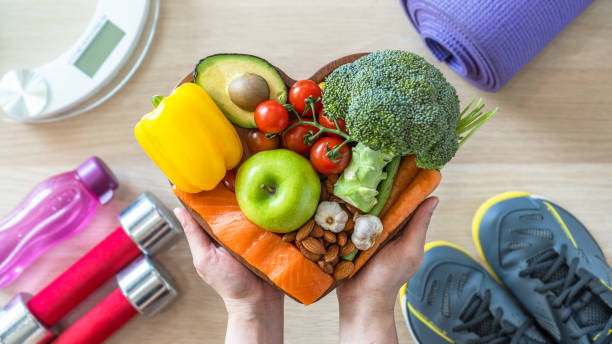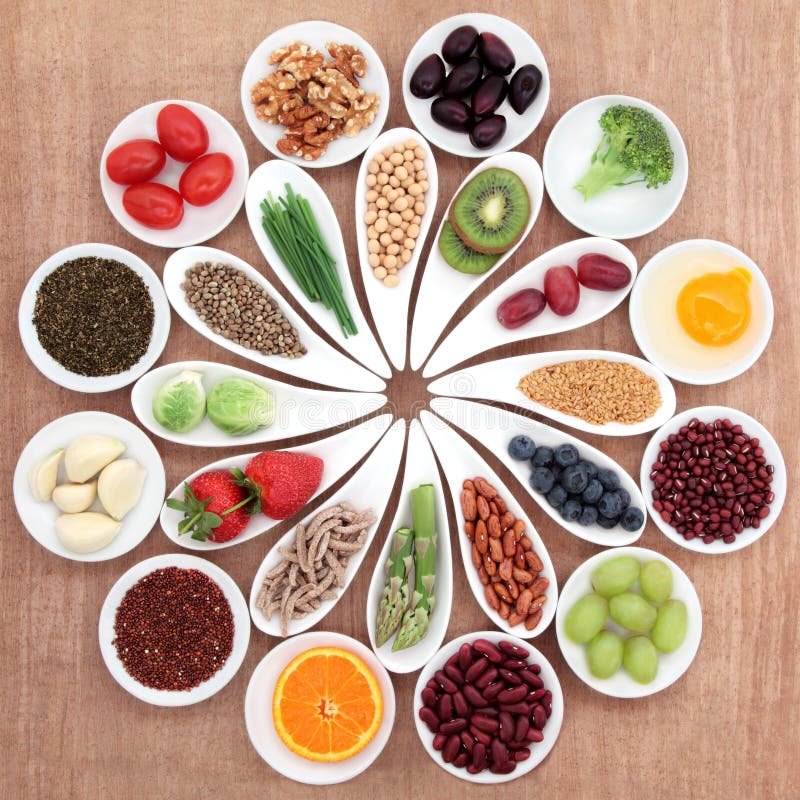Introduction: Water... The Forgotten Lifeline
Water is the most abundant element in the human body, making up approximately 60% of an adult's body weight. It is not just a drink to quench thirst; it is the lifeline that ensures all vital processes function correctly. However, amidst the pressures of daily life, we often forget the importance of maintaining optimal hydration levels.
Proper hydration is the foundation upon which good health and effective physical and mental performance are built. It is the key that unlocks higher energy levels, better cognitive functions, and a stronger immune system. This article is your detailed and comprehensive guide to understanding the science of hydration, how to effectively meet your body's water needs, and practical tips for making it an integral part of your daily routine.
---
Section One: The Science of Hydration and Its Importance to the Body
Water is essential for every cell, tissue, and organ in your body. It acts as a medium for chemical reactions, a carrier for nutrients, and a regulator of temperature.
1. Vital Functions of Water in the Body
Water performs an incredible range of indispensable functions [1]:
Regulating Body Temperature: Water absorbs and releases excess heat through sweating, maintaining the body's temperature within the normal range. Transporting Nutrients and Oxygen: Water helps dissolve vitamins, minerals, and glucose, and transports them through the blood to the cells. Lubricating Joints and Tissues: Water acts as a lubricant for joints and protects the spinal cord and other sensitive tissues. Eliminating Waste and Toxins: Water aids in the digestion process, helps the kidneys filter waste and expel it through urine, and prevents constipation. Maintaining Skin Health: Adequate hydration gives the skin elasticity and freshness, and reduces the appearance of wrinkles.
2. Long-Term Benefits of Optimal Hydration
Maintaining hydration is not just a preventive measure; it is an investment in your future health. Long-term benefits include:
Improved Physical Performance: Even mild dehydration can lead to a decrease in strength and endurance. Good hydration is essential for athletes and for normal daily activity [2]. Enhanced Cognitive Function: The brain relies heavily on water. Hydration improves concentration, memory, and mood, and reduces headaches. Supporting Kidney Health: Water helps dilute salts and minerals in the urine, significantly reducing the risk of kidney stone formation. Assisting in Weight Management: Drinking water before meals can increase the feeling of fullness and help reduce calorie intake.
---
Section Two: The Risks of Dehydration and How to Recognize It
Dehydration occurs when the body loses more fluids than it takes in, hindering its ability to perform its normal functions.
1. Signs and Symptoms of Dehydration
It is very important to pay attention to the signals the body sends. Dehydration symptoms can be divided into stages [3]:
| Stage | Main Symptoms | Additional Indicators |
|---|---|---|
| :--- | :--- | :--- |
| <strong>Mild Dehydration</strong> | Feeling thirsty, dry mouth and tongue. | Slight fatigue, headache, reduced urination. |
| <strong>Moderate Dehydration</strong> | Dark, concentrated urine, decreased skin elasticity. | Dizziness, lethargy, muscle cramps. |
| <strong>Severe Dehydration</strong> | Low blood pressure, rapid heart rate, fever. | Confusion, loss of consciousness, inability to urinate. |
Important Note: Urine color is the easiest indicator you can rely on. Very light urine (pale straw color) indicates good hydration, while dark urine (amber color) indicates an urgent need to drink more water.
2. Groups Most Susceptible to Dehydration
Some groups require special attention to ensure their hydration:
The Elderly: They have a reduced sense of thirst and may be taking medications that increase urination. Infants and Children: Due to their smaller body size and higher metabolic rate, they lose fluids more quickly. Athletes: They lose large amounts of fluids and salts through sweat during intense exercise. Individuals with Certain Illnesses: Such as diabetics, or those suffering from diarrhea and vomiting.
---
Section Three: Recommended Water Intake and Sources
There is no "one-size-fits-all" rule for water intake, as the need varies based on multiple factors.
1. Estimating Daily Water Needs
The National Academy of Medicine (NAM) recommends total fluid intake (from water, beverages, and food) [4]:
Adult Men: About 3.7 liters (approximately 15.5 cups) of total fluids daily. Adult Women: About 2.7 liters (approximately 11.5 cups) of total fluids daily.
Approximate Calculation Method Based on Weight:
You can use a simple equation to estimate your minimum pure water requirement (in liters):
$$ \text{Weight in Kilograms} \times 0.033 = \text{Daily Requirement in Liters} $$
For example, if your weight is 70 kg: $70 \times 0.033 \approx 2.3$ liters of water daily. This amount should be increased in cases of physical activity or hot weather.
2. Other Sources of Hydration Besides Water
Hydration does not come only from pure water; about 20% of our daily needs come from water-rich foods [5].
| Source | Examples of Foods | Approximate Water Percentage |
|---|---|---|
| :--- | :--- | :--- |
| <strong>Vegetables</strong> | Cucumber, lettuce, celery, tomatoes, bell peppers. | 90% - 96% |
| <strong>Fruits</strong> | Watermelon, cantaloupe, strawberries, grapefruit, oranges. | 85% - 92% |
| <strong>Beverages</strong> | Milk, natural juices, herbal tea (unsweetened). | 80% - 95% |
Note: Beverages containing caffeine (such as coffee and tea) or alcohol have a diuretic effect, which may increase fluid loss, so they should be balanced with water intake.
---
Section Four: Practical Tips for Boosting Daily Hydration
Proper hydration is a habit that can be built with simple, smart steps.
1. Strategies to Make Drinking Water a Habit
Start Your Day with Water: Drink a large glass of water immediately upon waking to activate your organs and replenish fluids lost during sleep. Use a Smart Water Bottle: Carry a reusable water bottle with you wherever you go. Choose a bottle with time markers to encourage you to track your drinking. Set Reminders: Use smartphone apps or alarms to remind you to drink water at regular intervals, especially if you are busy with work. Drink Before Feeling Thirsty: Feeling thirsty is a late sign that your body has already begun to dehydrate. Make drinking a preventive habit. Replace Sugary Drinks: Replace sodas and sweetened juices with water or water flavored with fruit slices (lemon, mint, cucumber).
2. Hydration in Special Circumstances
During Exercise: Drink two cups of water two hours before exercise, and drink small amounts every 15-20 minutes during the workout. After exercise, replenish lost fluids. For long and intense workouts, you may need sports drinks to replace electrolytes (salts). When Sick: In cases of fever, vomiting, or diarrhea, the need for fluids increases significantly. Use oral rehydration solutions (ORS) if necessary, and consult a doctor. In Hot Weather: Increased sweating means increased fluid loss. Maintain regular drinking and avoid direct sun exposure during peak hours.
---
Section Five: When is Overhydration a Problem?
Although rare, excessive water intake (Overhydration) can be harmful, a condition known as Hyponatremia.
1. Hyponatremia
This condition occurs when drinking excessive amounts of water in a short period dilutes the concentration of sodium in the blood to dangerous levels. Sodium is essential for fluid balance inside and outside the cells. When its level drops, cells swell, including brain cells, which can lead to serious symptoms such as [6]:
Nausea and vomiting. Headache and confusion. Seizures and coma in severe cases.
Prevention: Do not overdo water consumption, especially before, during, or after intense exercise. Listen to your body and drink when you feel thirsty, while adhering to the recommended amounts.
---
Conclusion: Balance is Key
Proper hydration is not just a fleeting piece of advice; it is a fundamental pillar of general health and well-being. From improving brain function to supporting kidney and joint health, water plays a role that no other element can replace.
Adopting conscious and continuous hydration habits is a simple investment with a huge return on your quality of life. Start today by applying the practical tips we have provided, and remember that balance is key. Do not overdo it and do not neglect it; instead, listen to your body's signals and make water your constant friend. Your health starts with a glass of water!
---
References
[1] Mayo Clinic. Water: How much should you drink every day? https://www.mayoclinic.org/ar/healthy-lifestyle/nutrition-and-healthy-eating/in-depth/water/art-20044256 [2] WebTeb. What are the benefits of drinking a lot of water? https://www.webteb.com/articles/%D9%85%D8%A7%D9%87%D9%8A-%D9%81%D9%88%D8%A7%D8%A6%D8%AF-%D8%B4%D8%B1%D8%A8-%D8%A7%D9%84%D9%85%D8%A7%D8%A1-%D8%A8%D9%83%D8%AB%D8%B1%D8%A9_22856 [3] Mayo Clinic. Dehydration - Symptoms and causes. https://www.mayoclinic.org/ar/diseases-conditions/dehydration/symptoms-causes/syc-20354086 [4] CNN Arabic. Beware of overhydration... What is the permissible amount of water to drink? https://arabic.cnn.com/science-and-health/article/2024/02/20/reusable-water-bottle-overhydration-wellness [5] WebTeb. Water sources are numerous: Consume them wisely. https://www.webteb.com/articles/%D9%85%D8%B5%D8%A7%D8%AF%D8%B1-%D8%A7%D9%84%D9%85%D9%8A%D8%A7%D9%87-%D9%88%DD8%A7%D9%84%D8%B3%D9%88%D8%A7%D8%A6%D9%84-%D8%B9%D8%AF%D9%8A%D8%AF%D8%A9-%D8%AA%D9%86%D8%A7%D9%88%D9%84%D9%88%D9%87%D8%A7-%D8%A8%D8%AD%D9%83%D9%85%D8%A9_15343 [6] CNN Arabic. Beware of overhydration... What is the permissible amount of water to drink? https://arabic.cnn.com/science-and-health/article/2024/02/20/reusable-water-bottle-overhydration-wellness



